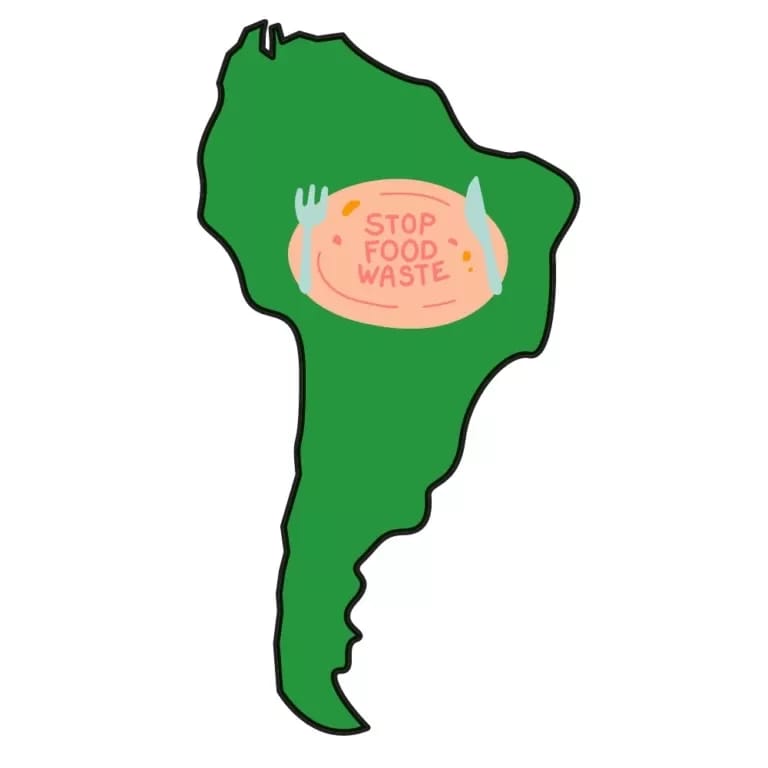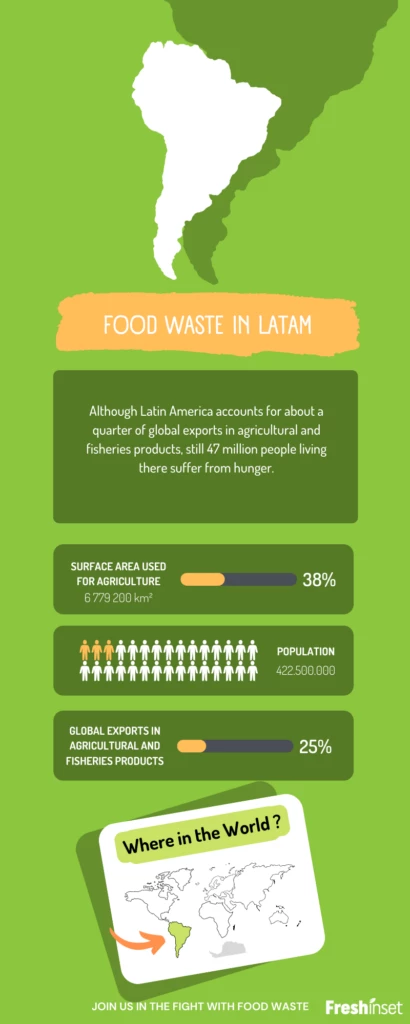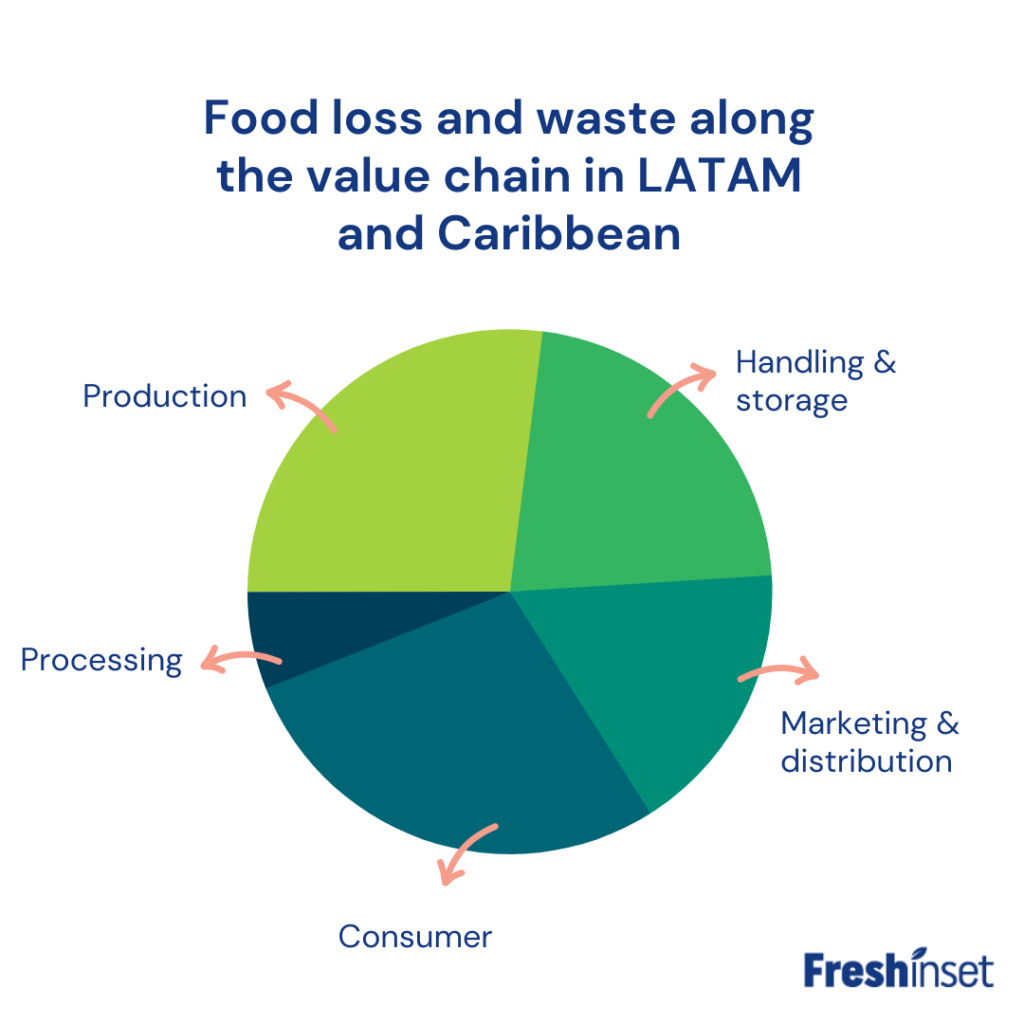
Preventing food loss and waste is obviously one of the greatest remaining global challenges. This challenge concerns also Latin America: the FAO estimates that 6% of global food losses occur in Latin America and the Caribbean and the region loses and/or wastes each year about 15% of its food. The Pan American Health Organization estimates that â in 2030, hunger will affect 67 million people in the region, a figure that does not take into account repercussions of the COVID-19 pandemicâ. In addition, this figure does represent the global food supply setbacks caused by the war in Ukraine. So even higher shameful hunger data are expected.

To get a good picture of the problem of food loss and waste in LATAM countries, one has to look at its disruption in the value chain. According to FAO sources, the total losses and waste occur at every stage of the food chain: 27% in terms of production, 22% during handling and storage, 6% occur at the processing level, 17% in marketing and distribution, and the remaining 28% at the consumer level.
The issue is strongly related to the difficulties faced by farmers during the production phase. Unpredictable climatic conditions, pests, and diseases are the main factors leading to inefficiencies during the production phase. The market inconsistency and product rejections by agri-food retailers due to quality requirements is also big issue. In addition to the above, there is limited infrastructure for storage and transport. Besides the increasing costs of land and maritime transportation.
Therefore, every day extended in the life of a vegetable allows producers to jump over the hurdles that stand between them and the final consumer.

As Fresh Inset is an impact-driven company at its core, we deployed our Vidre+ technology first in Latin America. We reckon that with the right tools, local communities can thrive with little or no external input. We also believe in empowering local growers to be most efficient, while providing top-quality fruits and vegetables at margins, that leaves them comfortable room to grow and develop. That is why our Vidre+ solution works so well in Latin America â with no need to change any of the existing processes in the food supply chain, it can add great value by extending the freshness of fresh produce, improving it appearance and overall quality, leading a better consumer experience in the end.
Contact us if you have any questions on how to implement our solutions in your Latin America-based food business.